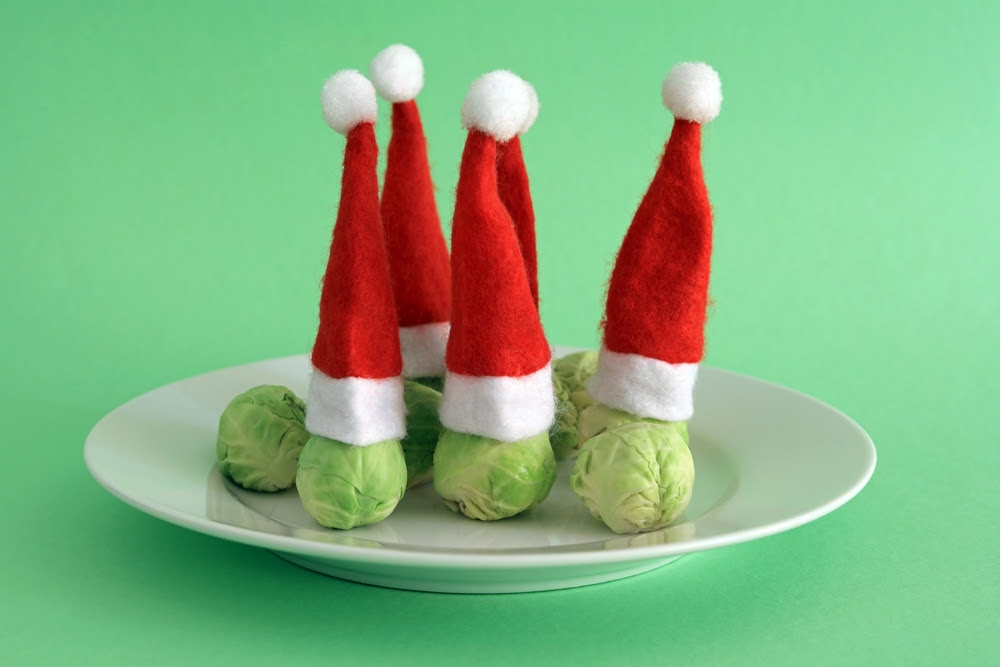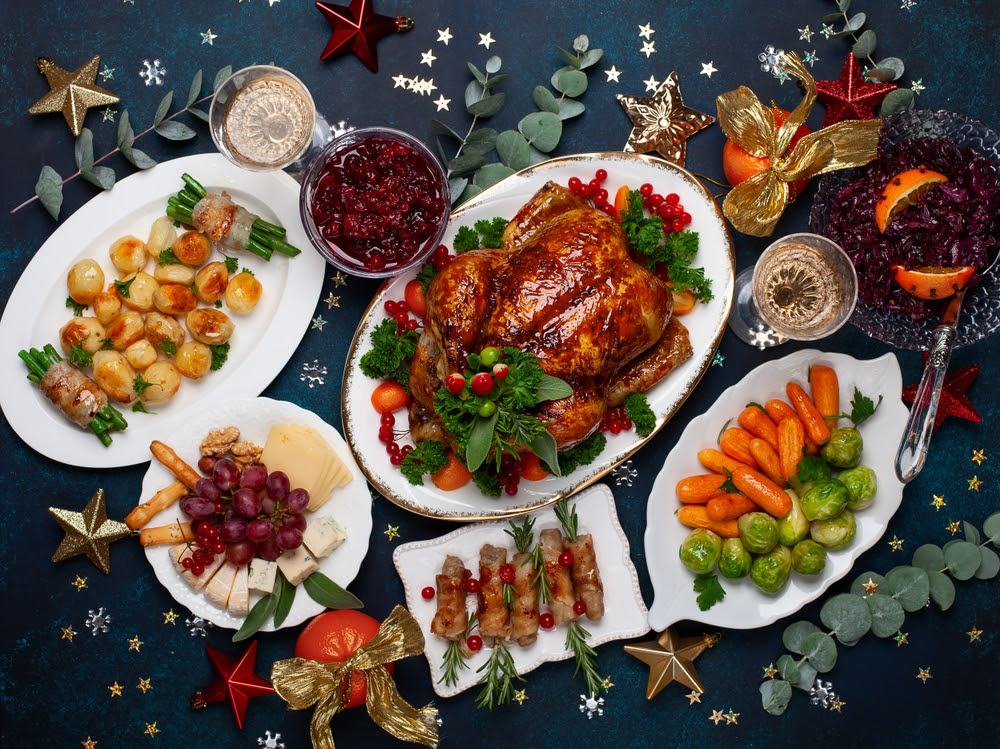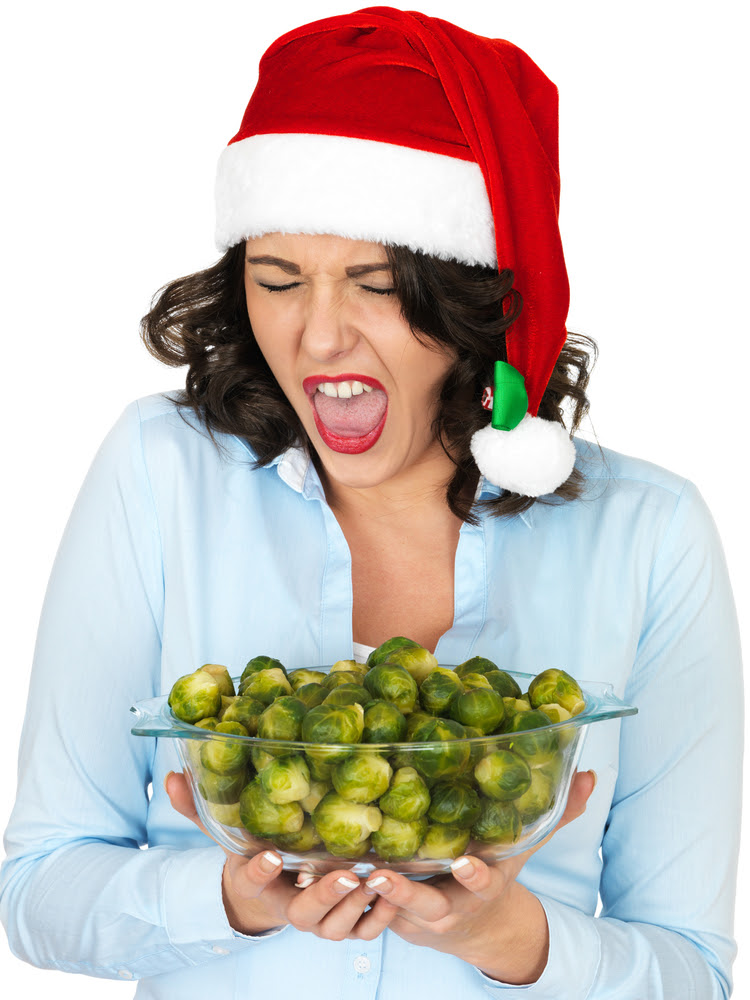Sustain Health magazine spoke with Bimuno® to explore whether the nation leans towards adoration, tolerance, or avoidance of sprouts. The revelations are nothing short of surprising!
They’re a vital part of our Christmas dinner and the most divisive item on any festive menu in equal measure. Still, according to new consumer-led research undertaken by prebiotic supplement brand Bimuno®, more than 72% of Britons are ‘likely’ to throw sprouts down their hatches this Christmas.
That said, there’s nothing quite like a bowl of humble Brussels sprouts to divide a dinner table. Well known for their marmite qualities, these mini balls of cabbagey goodness are packed with nutrition and flavour, but our bodies can find it tough to break them down.
Performance Nutritionist Ed Tooley said: “Sprouts come from the cruciferous group of vegetables, and their green relatives include broccoli, cabbage, and kale.
All of these contain beneficial micronutrients such as Vitamin K and folate, and the darker varieties also include antioxidants like Vitamins A and C, alongside a host of phytonutrients and their fibre.
All of these are beneficial, but when we have too much, the high fibre content and the fermentation of raffinose (an undigestible sugar) can cause bloat and flatulence.
“This can be said about several food ingredients around Christmas. If we go beyond moderation, then issues can arise. It’s a classic case of too much of a good thing.
Despite the perceived social benefits offered by alcohol, drinking too much too often can have implications for our gut health. Dairy is a great source of protein and calcium, but too much for those with some sensitivity can easily leave them in discomfort with frequent trips to the toilet.
You also have the high-fat content of some dairy sources like cheese and cream, which rapidly increases calorie intake and slows down digestion.”
“Brussels sprouts are a brilliant food,” said Nutritional Therapist Farzanah Nasser. “They are cruciferous vegetables and so if you have too many, it can make you feel really uncomfortable.
But it’s a really powerful and amazing vegetable that you should have as much of as you can. Starting your meal with something like that can actually help how you feel, by supporting a flatter glucose curve, than if you started with potatoes or carbohydrates.
Sprouts are such a healthy vegetable, they’re probably one of the healthiest vegetables, and you definitely want to get them in.”
As they prepare to make their headlining appearance at this festive time of year, some will have been put off for life by memories of soggy, overcooked sprouts of their childhood, others will be preparing to give them another go, and some will look to amp up this much-maligned side dish.
New consumer-led research from Bimuno® confirmed that 54% of the UK, or 36.4 million, are ‘very likely’ to consume sprouts on December 25, with a further 18% ‘somewhat likely’. 21% consider themselves ‘unlikely’ to chow down on the so-called ‘mini cabbages’, and 17% of the UK consider them sprout ‘n out misery.
The humble sprout – or green stink grenades – is unfailing, every year, the most divisive item on any festive menu. But it appears to be a significant miss with the youngsters. Less than 32% of 18 – 24-year-olds, under 36% of 25-34-year-olds and less than 45% of 35-44-year-olds plan on eating the ‘tiny green culinary crimes’ on December 25, whereas 59% and 70% of 55-64 and 65 and overs are ‘very likely’ to consume them.
As demand for sprouts rises over the Christmas period, consumer-led research undertaken by Bimuno® revealed that the East Midlands (64%) and the Northeast of England (60%) will be first out of the blocks to secure the festive veg, with over 60% of people living in those regions stalking the veg aisle.
It will be no surprise to see Wales (58%), who last year voted sprouts among the nation’s favourite Christmas veg, next on the list, along with the Southwest, who are also big fans of the unassuming sprout on the big day.
At the opposite end of the spectrum, sprouts won’t be omnipresent on the Christmas ‘big shop’ receipts of the Northern Irish, with 34% ‘very unlikely’ to consume them, while 23% of the East of England will be doing their utmost to avoid the little green disappointments on Christmas Day.
As the average person prepares to gorge on an enormous number of calories on Christmas Day, sometimes well over the recommended daily intake.
More than 250 million sprouts will be eaten, alongside 162 million portions of Christmas pudding, from December 1 to January 1. Festive roasts will also be washed down with more than 255 million gravy ladles and more than 287 million mince pies.
“We’re talking 2-4 times the typical daily intake here,” added Tooley. “And to achieve that, we tend to have a good mix of rapidly digestible simple carbs (sugars), high calorie yielding fatty foods and alcoholic drinks.
This can put a big strain on the body, and this is most noticeable around the main Christmas dinner. By then, many have had a sizeable breakfast, some bucks fizz, and the hand has been in the tin of sweets several times. All this before a high-fat, three-course meal accompanied by more alcohol.
“The gut will already be working at digesting the morning’s food before taking on this calorific load. To cope with this, the body must direct more blood flow towards the gut.
As a result of food consumption, metabolism will temporarily increase in order to utilise the food as energy. Unfortunately, the digestive process can be accompanied by bloating, discomfort and flatulence.”
While the once-a-year indulgence is worth it in many ways, you needn’t continue to struggle through with your top button undone on your jeans or hiding your bloated tum under your Christmas jumper in a bid to allow for your stomach’s inevitable expansion.
From prebiotics to portion size, Nutritional Therapist Farzanah Nasser has some simple tips to get your gut through December.
Rest and digest – be sure to chew food thoroughly, as chewing properly can be hugely beneficial in managing bloating and gas, since it is an important first step in digestion.
Also, take time over meals. Fast-paced eating doesn’t necessarily allow the gut ample time to break down food as efficiently, which can result in increased bloating. Take more time over meals and take one forkful at a time. It’s easier said than done at the family Christmas lunch but try your best!
Practise daily mindfulness – one of the biggest triggers for digestive discomfort, including bloating, can be increased amounts of stress, which can also be heightened in the run-up to Christmas.
Some daily mindfulness practices can be incredibly effective in managing stress, especially when it is consistent.
This could be meditation or simple breathing exercises like the four-part breath – breathing in for four seconds, holding for four, breathing out for four and holding on empty for four.
Factor in enough fibre – bloating can often result from constipation or slower movement through the gut, and with all the festive treats at Christmas, we can fall short.
Sufficient amounts of fibre are essential to support regular bowel movements. Fibre is found in vegetables, fruit, whole grains, and nuts & seeds, so try to aim for a variety of any or all of these. When not at festive gatherings, put together a few concerted veggie-based meals to help hit your quota.
Drink moderately and be merry – alcohol can create heightened inflammation and irritation to the gut, which can then lead to bloating.
Make sure you drink alcohol with or after some food, and not on an empty stomach, to prevent this from happening. And stick to a moderate two glasses if you do choose to drink alcohol.
Go for a post-dinner walk – A gentle, stress-reducing walk after a meal can have a positive impact on our digestion.
Any activity that helps reduce our cortisol levels will positively impact our wellbeing, so simply walking a few times either side of the big day can help.







